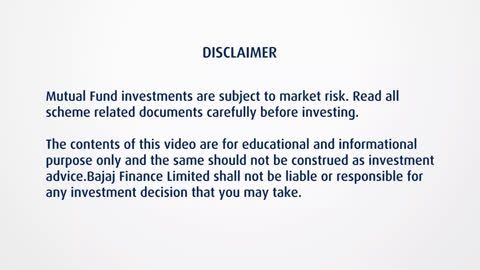Features and benefits
-
Easy online process
You can open an account online instantly with our paperless process.
-
Open account for free
No charges are levied for opening an account with us.
-
Choice of investments and modes
Invest in any mutual fund scheme that best suits you. Avail of the added flexibility of investing in two modes - lumpsum investment or systematic investment plan (SIP).
-
Affordability
You can start investing in mutual funds with a minimum amount of Rs. 100 for lump sums and SIPs.
-
Invest in direct mutual funds
You can invest in direct plans and skip distribution commissions.
Basics of mutual funds
A mutual fund (MF) pools money from several investors and invests in securities such as stocks, bonds, and short-term debt. They are managed by highly qualified and experienced professionals who invest according to the fund's guidelines and track performance.
Mutual funds are broadly classified into equity, debt, and hybrid funds based on asset classes.
Equity funds are mutual fund schemes that primarily invest in company stock. These are categorised into several groups depending on how they are managed or where they invest. Large-cap, mid-cap, index funds, and concentrated funds are examples of equity mutual funds.
Debt funds are mutual fund schemes that invest in fixed income securities such as government bonds, debentures, corporate bonds, and other debt instruments to produce a steady income stream. These are reasonably safe investment choices that have the potential to help you build wealth. There are various types of debt funds like liquid funds, which you can choose as per your needs and investment horizons.
Hybrid funds are mutual fund schemes that invest in more than one asset class. They usually invest in a mix of equity and debt securities, but they may also invest in gold or real estate. These are useful for reducing portfolio risk by investing across asset classes with low correlation.
You can invest in mutual funds quickly through Bajaj Finance and have a more incredible opportunity for appreciation and growth.
How to invest in mutual funds
Android users can dowloand the app by clicking on the 'Get the App' button to start investing.
- 1 Login with your mobile number
- 2 Click on the 'Mutual Funds' icon in the 'Investment Bazaar' widget
- 3 Provide your basic details such as PAN and bank account details to start investing in just 5 minutes
- 4 Select funds to make the first investment and pay via Net Banking or UPI
Why should you invest in mutual funds through Bajaj Finance?
- Invest in mutual funds of all Asset Management Companies (AMCs) at a single place
- Paperless instant online account opening process
- Higher returns due to 0% commission payout to agents/ distributors
- Zero charges for opening an account
- Convenient investments and portfolio tracking through a mobile app
- A single view of all your mutual fund investment portfolios
Eligibility criteria of mutual funds
-
Individual
Resident Indian (above 18 years of age), minors (below 18 years of age) can invest through their guardians, non-resident Indians, overseas citizens of India and persons of Indian origin (above 18 years of age)
-
Non-individuals
Hindu Undivided Family (HUF), companies and partnership firms registered in India, societies and trusts, banks (including co-operative banks and regional rural banks), financial institutions and investment institutions, foreign portfolio investors and other mutual funds, registered with SEBI
Note: Currently, only resident citizens of India above 18 years can invest in mutual funds through our platform.
Fees and charges for mutual funds
There is no advisory or platform fee applicable to your mutual funds. However, regular Asset Management Companies (AMCs) charges may be applicable.
Most AMCs charge an expense ratio, which is the annual fee charged by all AMCs for managing mutual fund schemes and exit load at the time of redemption. This amount usually varies from one scheme to another.
Frequently asked questions
A mutual fund is an investment option that pools money from various investors, and this fund is invested in stocks, securities, money markets, bonds, etc. Well-qualified professionals manage these investments. Mutual fund comparison can help in deciding between different options. The funds may be collected as a lump sum amount or through a Systematic Investment Plan (SIP), as per the investment objective and strategy of the fund.
An asset management company (AMC) offers two plans in mutual funds, i.e. direct plan and regular plan. A direct plan is directly offered to the customers by a fund house without the involvement of agents or third-party distributors. Such plans have a lower expense ratio than regular plans. Apart from the expense ratio and its resultant effect on the net asset value (NAV), everything else stays the same.
Know your customer (KYC) is a mandatory procedure in India that helps financial institutions verify prospective customers' addresses and identities before conducting transactions.
It also captures information related to your financial status and occupation. The KYC process helps financial entities verify that investments/ transactions are made in a real person's name. This helps cut down unlawful practices like money laundering, fraud or financing illegal activities.
Here are the required documents for individual investors:
- Proof of identity such as PAN card
- Proof of address (any one): Aadhaar/ passport/ driving license/ voter ID
- Bank details
Please note: This platform is available for resident Indian investors only.
There are two ways of investing in mutual funds – lump sum and systematic investment plan (SIP).
Lump sum is a method of investing a corpus at one go. It is usually used when an investor tries to time the market.
SIP is a method of investing a fixed amount at regular intervals, similar to a recurring deposit. The most crucial benefit of SIP is averaging the cost of buying, and investors don't have to time the market constantly.
Disclaimer
Mutual Fund investments are subject to market risks; read all scheme related documents carefully.
Bajaj Finance Limited ('BFL') is registered with RBI as a deposit accepting Non-Banking Financial Institution, and with the Association of Mutual Funds in India ("AMFI") as a distributor of third-party Mutual Funds (shortly referred to as 'Mutual Funds').
Customers interested in investing in Direct Mutual Funds may consider placing their investments through Bajaj Finserv Direct Limited ("BFDL"), a wholly-owned subsidiary of Bajaj Finserv Limited and is registered with SEBI as an Investment Advisor with Registration no. INA000016083. Mutual Funds are available to resident Indians only on the BFDL platform and NOT available to any person residing outside the territorial jurisdiction of India. It may be noted that BFL is merely referring potential customers who may evince interest in investing in Direct Mutual Fund Schemes to BFDL, without risk or responsibility on the part of BFL.
BFL does NOT provide investment advisory services in any manner or form. BFL does NOT perform risk profiling of the investor and does NOT carry independent research or analysis, including on any Mutual Fund schemes or other investments. NO customised/personalised suitability assessment is done by BFL. Further, BFL does NOT provide any guarantee of return on investment. Hence, the final investment decision shall at all times exclusively remain with the investor alone, and BFL shall not be liable or held liable for any consequences thereof.








